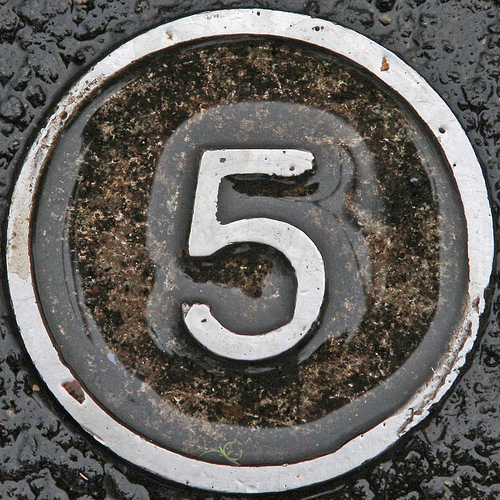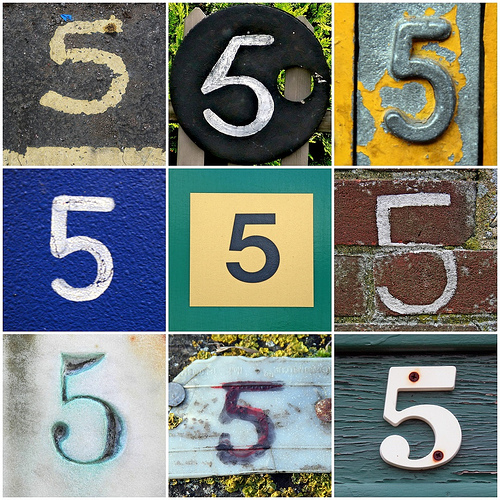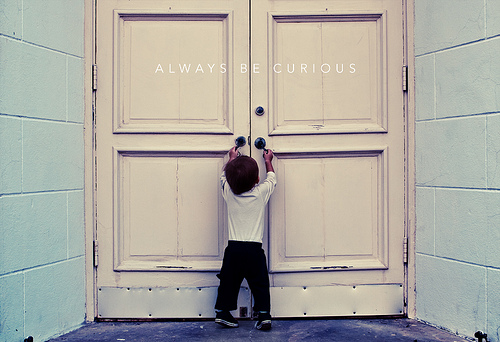10 Reasons to Self-Publish–No More Excuses
I so enjoyed this list of 10 reasons to skip traditional publishing by Robert Bidinotto at PJ Media.com under their Lifestyle section on May 29th that I’m going to repost (reiterate) them here. After having “waited” 23 years to get published, spending all that time hearing my agents (six of them in total) tell me what a great writer I was and how they were sure they’d be able to sell my book(s) any second, I finally did get my first traditional publishing contract through a contest I entered. It was a big contract with one of the “Big Six” publishers. I thought when that book came out (my suspense/drama Someone to Blame), I would finally, finally, be on my way to best-sellerdom. It was a breakout novel—a shoo-in. Was I wrong.
The waiting was agonizing—from winning the contract until the book actually came out in print took nearly two years! It’s so hard for us authors to complete a book and then wonder how many years it will take to sell, then more years to come out in print. It’s agonizing, to say the least. And to my shock, when I spoke to the marketing/sales rep at a retail show I attended for the trade, he said that although my book had sold well in the presales, that was all the marketing and promotion I was going to get. It was summer; my book was in the fall catalog, but now he was selling the spring “line,” and so my few minutes of promotion had already passed by—months before my book released.
A No-Brainer
We’ve all heard the stories—how only big-name writers get any marketing dollars pushed behind their books. We all know that even if we get a traditional publishing contract, we still have to market just as much as if we self-published. So, think about it—really! If that’s the case—and the pluses of going indie SO outweigh going with a traditional publisher AND the stigma of self-publishing is really going away (gone, in my book), then isn’t this a no-brainer?
I still have books under contract with a small traditional publisher, and I really enjoy my relationship with everyone on the team. I have the privilege of being in control of my cover art and design, PLUS I pretty much write anything I want and turn it in without even having to tell them what my book is about. Yes, it’s a sweet deal and a lot of fun. But unless my seven-book fantasy series eventually becomes a huge (I mean huge) success, I won’t see any money from it. And I have author friends who’ve made up to $50k a month self-publishing and yet they are still trying hard to get a traditional publishing contract. I asked one friend why, and she said she just wanted to be able to say she’d done it—and wanted the publisher to do the print books, which she felt were burdensome for some reason. I’m sure she knows she will make pennies compared to what she’s been making as an indie best-selling author, but this seems important to her. But for me—I’ve been there, done that. There is no great fame or benefit from being able to say “I’ve been published by the Big Six” unless you broke out and made it to the top. And good luck having that happen.
Okay, Pay Attention
So . . . in case you are still thinking you want that old-fashioned contract, here are 10 reasons you should self-publish instead (taken from the article I mentioned above). I wonder how many articles like these we authors have to read before we get the picture.
- Nobody Can Stop You from Publishing Your Book. Along the path to a legacy book contract you’ll be confronted by hordes of gatekeepers: literary agents, acquisition editors, editorial committees, bean counters, and publishing-house CEOs, all answering to the international conglomerates that actually own most major “American” publishers. Odds have become vanishingly small that you can run this gauntlet without being stopped dead in your tracks by a rejection letter.
- You’ll Make a Lot More Money. Under standard book contracts, royalty terms for authors are terrible—especially for eBooks. Most eBooks are sold through online retailers like Amazon. Let’s say you’re a traditionally published author, and assume your publisher priced your eBook at $9.99. On each sale, Amazon takes 30% of the list price, leaving about $7.00 for the publisher, agent, and you to split. However, your publisher will keep 75% of that $7.00, or $5.25. He’ll pay you, the author, only 25% of that $7.00—just $1.75. And out of that measly amount, you then must pay your agent his 15% commission—or 26 cents. Bottom line? You will net just $1.49 on each $9.99 ebook sale. (And that’s assuming your publisher honestly reports your sales and royalties; there is serious doubt that many do. Now, by contrast, what happens if you self-publish your eBook at that same price? On each sale of your $9.99 eBook, Amazon takes its 30%, leaving you $7.00. But guess what? You get to keep all $7.00—because you won’t have a publisher or agent to share your royalties.
- You’ll Get Paid Much Faster. When a publisher accepts your book, he offers you an “advance” against sales. But advances usually are paid in installments stretched out over long periods. Publishers also report sales and pay royalties slowly: Royalty statements are issued semiannually, and checks sometimes arrive even later. You’ll often wait months to find out how well your book is selling. Which means it’s often impossible to anticipate your income when you’re budgeting. By contrast, eBook distributors like Kindle Direct Publishing and Barnes and Noble’s Pubit, and print-on-demand services such as Amazon’s CreateSpace, report your sales virtually in real time. In addition, they pay your royalties monthly, with just a sixty-day lag from the time sales began.
- You’ll Keep All Rights to Your Work. Legacy book contracts are a minefield for the author. The sheer complexity of negotiating a contract can be confusing and intimidating. If you aren’t a lawyer, odds are you’ll unwittingly sign away forever secondary and subsidiary rights that could be a gold mine.
- You Can Publish Your Book Incredibly Fast. One of the worst things about legacy publishing is that it takes forever to get a manuscript published. Time = Money for authors, too. Most publishers insist that you submit your manuscript through a literary agent. It can take months of query letters to enlist one. Then you’ll wait days or weeks to sign a contract with her. Then more weeks working together to hone an acceptable “pitch” that she’ll send to publishers. Maybe she’ll also want you to rewrite some of your book. Next come months—maybe a year or more—of submissions to publishers. In the increasingly unlikely event that your agent corrals an interested publisher, weeks of contract negotiations follow. The publisher may insist on more rewrites and editing. Then the book goes onto their publishing schedule. Due to long lead times, it will be another year, eighteen months, or even longer before the book rolls off the presses. So if you’re really, really lucky, you’re looking at a minimum of about two years from the time you query agents till you see your baby sitting on bookstore shelves.
- You Can Publish At Your Own Pace. Traditional publishing operates on a fixed calendar. Writers often don’t.
- You’ll Have Total Control. The typical author treasures her book. It’s her baby. But unless she’s already a big-name author, she’ll have almost no input, let alone control, over what her publisher decides to do to her baby. As a legacy author, you can’t pick the cover, set the price, or select the interior design and fonts. You won’t have any say over the dust-jacket copy, ads, marketing pitch, or overall budget. You’ll have zero influence over where your book is distributed, or for how long. And subtle terms in your book contract can be ticking bombs. Without warning, your publisher may even drop your book—or you, as one of their house authors.
- You’ll Have Complete Creative Freedom. When a writer puts himself in the hands of an agent and publisher, he may be hoping for a lot of things. Maybe validation and affirmation of his writing talent. Certainly, somebody else to do the grunt work of publishing and marketing. Availability of his work in bookstores and retail outlets. Reviews, bestseller lists, travel, book signings, big advances . . .
- You’ll Have Time to Find Your Audience. The production, marketing, distribution, and sales infrastructure established by Legacy Inc. demands a constant churn of new titles on the shelves of bookstores and public retail outlets. Because that infrastructure is so expensive to maintain, retail shelf space is precious. Each book must carry its own weight in sales or be replaced quickly by one that will. That’s why even best sellers disappear so quickly. A typical book has a six-to-eight-week shelf life in stores before a new title takes its place. And eventually, it will probably go “out of print.” It’s completely different for today’s self-published books. Self-published books never have to go “out of print.” They have unlimited time to find their readers. Indie authors are discovering that they can successfully relaunch “backlist” titles long out of print—and also that books which didn’t sell well at launch can take off any time later and become bestsellers.
- Finally, You’ll Be on the Right Side of History. The constant struggle to maximize returns from scarce bookstore shelf space has habituated legacy publishers and authors to a “scarcity mindset,” says successful self-publishing author Kristine Kathryn Rusch. “In fact, their entire business is built on it.”
Bidinato sums up by saying: “No, self-publishing isn’t for every writer. Is it hard work? You bet. Is it time consuming? Sure is. Is there a learning curve to master? Absolutely. Self-publishing success requires those things, plus an entrepreneurial spirit and a measure of luck, too. But if you compare closely the legacy vs. indie publishing models, which do you think represents the future of publishing? More importantly: Which offers you the greatest potential rewards as a writer? My fellow scribe, I urge you to give it a shot. The rewards are many. And there is no downside risk.”
Your thoughts?












That was interesting reading, some of which I had heard before, some of which was new to me. Another argument in support of your position is that any other profession has no stigma attached to it when a person funds his or her own business (think of a restaurant or a real estate company or a travel agency…), but when an author funds his or her own business (publishes online) there are two sides to that coin.
Which brings me to my question for you. How do you address the people who say e-publishing your own work is bad because it doesn’t have a publisher backing you, giving you credibility? Often self-publishers rush to get their works online, resulting in substandard work, which brings down the reputation of all self-publishers. Is there a way to combat this?
For the record, I am not yet published in either the traditional manner or online, and haven’t decided which venue I want to pursue.
Yes, read my recent post, a guest post from Ben Galley, on “Is the Stigma of Self-publishing Gone?” It discusses this topic.
Thanks for pointing out that post. It’s good to know the industry is headed in the right direction after some highly publicized disappointments. These posts give me a lot to think about, and I really appreciate your comments on the topic.
This just solidifies my choice to go indie with my second book. I’m happy with the small press I’m with for my debut, but I’d like to make some money and have the control. With all the work I’ve got to do, why shouldn’t I get the lion’s share?
I’ll admit, the idea of doing everything is daunting, but there are so many great groups out there to support indie writers I can’t hide behind that excuse anymore.
Thanks so much for sharing this with us!
You betcha!
WONDERFUL! i wish all authors knew this…but then again, well established authors are leaving mainstream publishers to self publish.
I am lucky to get clients who have researched before finding me,grateful to find excellence when looking to find the vendors to help them at every stage. thanks for your support to self-publishers. it’s not as scary as it seems.
Great information here. Gives those of us who haven’t yet been published much to think about. I was one, who was for a long time against self-publishing. Weighting the pro’s and con’s….In the end it is up to the author. After all our hard work, we want to see our work out there and being read. Plus know, we’re NOT on the short end of the stick making “.99 cents per book! Personally, I’m no spring chicken in life; therefore, as you’ve stated, I’m not one who have three or more years to play the “waiting game” not if “I” want to to see my work out there and being read! Honest article here, gives clear, clean answers for a change. This is something I will keep and review….Thank you Susanne for presenting this so well.
I waited 23 years to get a publishing contract. Now I think of all the novels I could have written and published in that time and all the readers who would have read my books. Of course, back then there was no Internet or social media either, so there was no way for an indie author to get the word out unless they were very rich and could pay for ads in magazines and newspapers.
Excellent read, thanks so much for taking the time. As I approach my fourth draft of my first novel it is something I have been wondering about, and had almost dismissed – this will encourage me to look further into it.
I do agree with one of the commentators about self-published authors publishing before the manuscript it ready and I think it’s worth pointing out that authors should make use of editors one way or another before they do send their work out into the world.
Self-publishing is the way to go. Especially with ebooks. It is so much easier today to get your work out there. Add in promoting with social media, a blog, teaming up with other author resources on the web and marketing your book just got easier!
Here are a few more tips to help when self-publishing. Your book will be judged by its cover. The stigma of self-publishing is slowly going away. One key element is to make sure your book looks professional.
Here are the most common mistakes we see in both print and ebooks:
1. Poorly designed cover. If you don’t have the skills to design a cover that stands out, don’t do it yourself. Likewise, leave the templates alone. Find someone to design your cover.
2. Book description. You need a marketing savvy book description to sell your book. Again, if you can’t write it yourself, find someone who can.
3. Interior design – Even if you have a great cover, this is just as important.
4. Never, ever edit your own book. It is impossible to catch your own mistakes. Don’t ask your friends or neighbors unless they have experience.
5. The other glaring mistake we see is the placing of the word “by” next to the author name. Please just use your name.
We’ve designed over 300 books and we are happy to answer any questions or help. We support the indie writers and the small press publishers. Thanks for the great article and for getting this information out there!
Perhaps if you write novels it might be alright…but I write family history memoir. I have already sunk years of work and $$$ in gathering data, historical background, memberships to online research repositories, documents from NARA and state archives…etc. Every company I have looked at (and I have several old college buddies who have tossed an self-publishing company my way) requires money up front! That’s the whole part of publishing…making some money. And when there’s been such a large investment already, I can’t see scraping a few more thousand together to publish the work. The least expensive company I saw required at least $500 to start. That’s outrageous! Sorry, I don’t think anyone will ever be able to sell me on the idea.
Hi there, Ms. Lakin,
As the author of the PJ Media post that you quoted, I’m delighted that you gave it a new lease on life here.
Since the spectacular success this year of my self-published debut thriller, HUNTER — which soared to the top of the Kindle and Wall Street Journal bestseller lists last December — I’ve been encouraging fellow writers to take the plunge and give it a try. I’ve also been sharing with them, at no charge, much of what I’ve learned about the how-to’s of indie publishing and marketing.
Anyone interested in learning more is welcome to contact me by email (RobertTheWriter [at] gmail [dot] com), visit my blog (www.bidinotto.com), and befriend me on Facebook or Twitter. Meanwhile, in exchange for the help, I’d appreciate it if you’d look at my thriller’s Amazon page and see why HUNTER sold over 50,000 copies in 35 days: http://amzn.to/O0UKCB
Good luck to all of you in your own writing and publishing adventures.
Hi Robert, thanks so much for dropping in! I loved the info you presented and glad you are so willing to help writers. One thing I’ve been finding as I’m venturing into indie publishing and away from traditional is there are so many authros so willing to share and help others. It used to be that authors were competitive, secretitive, and not so friendly! At writers’ conferences other authors were viewed kind of as the enemy (competition for those few slots) but now that there is room for every good book to have great success (no limited shelf space and plenty of eager readers), there seems to be a more magnanimous mood. Sharing what you’ve learned and how to succeed doesn’t take away from your own success. It just makes you the cooler dude on the block. I’m going to be featuring many authors’ guest posts in the upcoming months sharing how they got successful. Maybe you’d like to write a blog post too!
That’s very kind of you. And I just may take you up on the offer when time permits.
You raise a very important point about “competition for those few slots.” In traditional publishing, there is an upper limit on the number of books published in any given year or “season.” That limit is defined not just by the publishers, but by the available inches on shelf spaces in bookstores. As I point out in the article, that shelf space has been plunging rapidly, with entire bookstore chains like Borders disappearing, and space in others being diverted to toys, games, book bags, and–in the case of Barnes & Noble–displays for the Nook and all its attendant accessories. All this has put more and more pressure on traditional publishers to increase the proportion of blockbusters in their overall output, much to the disadvantage of the vanishing midlist author. After all, where is the focus of an industry where one out of five adult hardcovers currently in print are E.L. James’s “50 Shades of Grey” trilogy?
Indie publishing has thrown those limitations out the window. Self-publishers aren’t competing for scarce shelf space, because online marketing, ebooks, and print-on-demand technology provide unlimited virtual “shelf space” in The Cloud. This has leveled the playing field among anointed Big Name Authors and struggling midlisters, allowing all writers opportunities to be published and have their work find an audience.
And that, as you indicate, has changed the attitudes about competitive “rivalry” in the book industry–at least among those open to indie publishing. Nobody’s success comes at the expense of anyone else’s similar opportunities. The competition now is for “visibility” or “discoverability,” not limited slots on some publisher’s calendar or shelf inches in a bookstore. And in the new competition, everyone has pretty much an equal shot at finding his niche on the cheap, so there is far less invidious comparing of “status,” or fighting for limited marketing dollars. Instead, there’s a lot of friendly camaraderie and information-sharing. Like what you’re doing here.
I commend you for it, and I hope other writers take full advantage of the opportunities. There is simply no downside risk.
Thanks for sharing that! It’s a great time to be an author and with social media, we can build tribes and join other tribes and be a part of communities like this that willingly help support one another! It’s all good!
Great article. How do you know which self publisher to use that won’t rip you off with all the costs for publishing it.
You can post on groups and talk to other writers and get recommendations. There are lots of great companies out there, but even Bob Mayer has switched over to Create Space at Amazon (Google his blog post on that for reasons). That’s what I’m going to use for turning this blog’s year-long course Writing the Heart of Your Story into a book this fall, and for my two eBook novels I”m putting into print. You can also hire people to help you prepare and design your cover and upload your files, which I”m also going to do. If you are ready and want some names that have been recommended to me, contact me and I’ll discuss with you.
I believe I probably could use a good editor for my short story compilation of partly interconnected fictionalized tales based on relationships (with two exceptions included which are pure fiction, including a Vampire story with a difference!) I can only trust Word’s spell & grammar checker up to a point! At certain points it will say…”fragment, consider rewriting” for example! It is punctuation that I have the most anxiety about (as you may even have possibly noticed from this brief note!) In any event I believe short stories are the future in our nervously contemporary time and more films have been adapted from short stories & novellas than long novels! (Personally, I prefer Melville’s short stories to “Moby Dick”, for example!) As for cover art, I can do that myself having been an Art Director/Graphic Designer for the recording industry (which is now going the way of the Dodo bird, alas!) As I am now semi-retired & living on a fixed income I simply cannot afford the big bucks some editors may demand… before I go ahead & dare self-publish! I should greatly appreciate any feedback you can render. I communicate via e-mail for the present, feeling that Facebook & Twitter represent communication overkill (though my opinion about this is not written in stone!) I am however with LinkedIn but have not as yet used it to advantage! Thank you. Sincerely, Fred Holtz
Agree! I am a newly self-published author and I have complete control of everything. The only challenge is editing. You may have to pay extra for editing costs along with copyright costs. But in the long run, it is still worth it. Everthing takes patience and preserverance. Good day!
It is a wonderful time to be involved in the writing world. I have learned so much and still have so much to learn. Once the lessons are evaluated and applied, I can only see light at the tunnels end.I appreciate all of those who do help others without expectations of return, other than the thanks. I do have a list going, of my own, that has the names of those who have been instrumental to my development. When the first series launches and starts selling, I intend to pay back and forward. Thanks to you and those who contribute.
Ten reasons NOT to self-publish:
1. SP books are almost never reviewed by the best sources (I’m a reviewer for some international organizations). Compelling reviews by persuasive organizations sell books. You’ll be left out in the cold if you SP.
2. Bookstores (where almost half of all books are still sold) rarely stock SP books. You’ll have to convince them one at a time.
3. Your fiction author platform is LOWERED by SP. Publishers prefer that fiction authors pass the quality test of being trade-published.
4. SP books are almost never later trade-published. Publishers believe that all books by a novice author have a finite number of potential sales. If you SP, you will have eaten into that number in the eyes of publishers.
5. If you SP, you might lose the wonderful and critical interventions of a talented editor. Just one editorial change made an enormous difference in sales of one of my TP books. Had I SP, I might have missed out on that knowledge.Instead of my publishers “controlling” the process, they enhanced it.I remained in control.
6. A few SP fiction books are wonderful. But the vast majority of SP books are crap. As long as your cat can become a SP author, as long as there is no quality oversight, all SP books will be lowered in value. Your SP book will also be associated with that vast morass of garbage.
7. There are literally thousands of small independent publishers around the world and most of them will entertain a novice author with talent and a marketable book. If you SP, you will have missed out on that wonderful opportunity.Being published “fast” means nothing compared to being TP by a publisher that will make you and your book famous. That almost never happens with SP. For fiction, you can count the number of best-selling SP authors on your fingers and toes (and most of them were already celebrities).
8. Publishers will promote your book at key international book fairs, conventions and conferences. It would cost the SP author tens of thousands of dollars just to attend those famous book fairs. But, since you’re SP, no one will pay attention to you.
9. Literary agents pay no attention to SP authors. Literary agents hold the key to being published by all of the major publishers (to make you famous as an author). If you SP, you’ll have no chance for an agent or (through the agent) a major publishing deal.
10. If you think your piece of literary fiction should be made into a film, then don’t SP. The movie industry seeks potential book to film opportunities with the major publishers (Random House, HarperCollins, Prometheus, Penguin, Oxford Press, etc.). Those publishers ignore SP fiction books.
If you write fiction and you want it to be a sales success, if you want to enhance your author platform, if you want top reviewers to consider it, if you want agents to look it over and if you want it made into a film, then SP is the kiss of death.
Meanwhile, thousands of unknown fiction authors are TP every week. Learn how to write a winning publishing proposal, how to query agents and solicit publishers. I wrote about all of this and more in my blog at http://cweinblatt.wordpress.com. Good luck!
Thanks for sharing those thoughs. However, many of us traditionally published authors now care more about having the control of our careers than the points you list. I am happy to for go a PW review for huge sales, faithful fans, and a nice income that allows me to keep writing!
Your article is bang on. It took my first children’s chapter book
9 years and 27 rejections before finding a publisher. Well, actually, it took 8 years. I had a traditional publishing house contract before the present one, but they cried “financial problems”, but not until the contract was up.That publishing house wasted 2 years of my writing life.
So, yes, when you think about the whole picture of tradition vs.
indie publishing, I’d have to say the whole indie thing looks mighty good.
Absolutely! I totally agree on all counts. One of the most important for me is keeping my rights — things are in such turmoil right now. It’s too easy to find yourself on the wrong side of the shifting lines of the industry.
As you said, whether you have a traditional contract or not, you have to be ready to work hard on the marketing. Yes, there’s even more hard work as an indie author, but that’s not the big reason I hear for going for that trad contract. Like you noted, it seems to be sought after for the prestige — and the difference there is eroding fast. I’m definitely going the indie route when I’m ready!
I have self published three titles so far, and am working on getting four more to market. The problem when self publishing is getting your name out to the people who are buying. Friends and family are just not enough. I have tried social media like Facebook, Linkedin, MySpace, Pininterest, Twitter, Youtube, I have started my own website, sent in my titles for review (still waiting for results), my book is available in softcover, and in e book form for both the kindle and the kobo. What else can I do? I do not have the money of a publisher behind me for proper marketing. This is the biggest drawback to self publishing.
Successful authors will tell you you have to keep at it, month after month, to get your name and books known. Growing your twitter followers and joining a community in which authors cross promote also helps.
Hi,
I can help with this question. In June, I posted a good article about the companies that will publish your book, if you decide to self-publish. I gave some info about self-publishing, as well as plenty of links for writers to check out before taking the leap. If anyone wants to read this, here is the link to that article:
http://sunni-faeriebookloft.blogspot.com/2012_06_01_archive.html
I use CreateSpace myself and have been very happy with them. They are on the list, as well as at least a dozen others. I also included a few links for the UK and Australia.
It is not as expensive up front as you may thing to get self-published, but I will leave all of you to do your own research and check out each link I provided, if you like.
Thanks for allowing me to share this with you.
Sunni
You and your readers might also be interested in a blog post by James Altucher “Self-Publishing Your Own Book is Your New Business Card” (please search for it, I don’t know if I can use links in this comments).
While giving some other very good reasons for self-publishing, that post also explains how to do it for someone new to the idea. I heard about Createspace from that post and just published three books in as many months over them.
As far as I am concerned, the fact that self-publishing is much faster is enough reason to go with that route for everything I write from now on.
Thanks for turning so many of my thoughts into words. Been working my way through self pub for three years and hit many tough climbs up the learning curve BUT do see some advances in the journey. Now have two novels released in print and e-form and have started the groundwork for the third in the trilogy. It’s a grinding step by step but so worth it.
This is untrue:
10. If you think your piece of literary fiction should be made into a film, then don’t SP. The movie industry seeks potential book to film opportunities with the major publishers (Random House, HarperCollins, Prometheus, Penguin, Oxford Press, etc.). Those publishers ignore SP fiction books.
Ridley Scott & 20th Century Fox recently purchased the rights to a self-published work of science fiction.
I personally know two friends/clients whose very minor self-published novels are being filmed as major motion pictures and HBO specials so you do not need to have a TP book to get a movie deal and a movie actually made. I know many others who’ve been paid film options as well.
I started out determined to be traditionally published. I thought it was the only way. The more I learned about self-publishing, the more I saw the possibilities. I’m strongly leaning towards self-pubbing (although I plan to make sure my work is polished and professional).
What an interesting discussion. Up until now I have been traditionally published (7 books in small houses and lots of stories worldwide), but now I have started to think about SP as it takes so much time for publishers to decide and they ask for more and more limitations, which makes me really angry.
so thank you for sharing all your opinions!!!!!
Spot on! Now in its second printing, my self-published collection of essays on home and family life won four awards for creative nonfiction and continues to sell on Amazon and independent stores after 6 years in print. I sell my own copies when I teach workshops, collecting my own cash (which enhances my speaker fee).
The only caveat is that some reviewers turn their noses up when they discover a book is self-published. This too, is changing.
The secret to success for self-publishing, as many point out, is to hire good designers and top-notch editors to help “package” your book before you publish. Then get to know every journalist in your region and get some press.
Over the past 12 years I’ve gone the whole cycle – self-pub (3 novels) to trade pub (4 novels) and back to self-pub (4 novels).
I’m loving the control I have with self-pub, the speed I can release new works, and the up-to-the-minute sales figures which tell me if a new blurb or a tweaked cover is having any impact.
More pluses: I don’t have to ask my publisher if I can share a sample chapter, give copies away, sell my own books.
There are still advantages to a contract with a trade publisher, but to me none of them outweigh the self-pub alternative.
Thanks for sharing this! I agree!
I am so inspired by the abundance mentality on this site. I am struggling through the learning curve as I write my first book. It is much more challenging than I ever imagined. Thanks to everyone for sharing your experience and insight. I look forward to sharing my own insight and getting to a point where I too, can help others. Thank you again.
Carol Ann
Any thoughts about using a pen name?
Thanks Carol! Some people use a pen name when writing in a completely different genre for a different audience than their other books. I probably should have done that since I write in numerous genres and for very different audiences. However, I likied being able to show the depth and breadth of my work and feel it gives me more validity as a “real” author, so I didn’t. I’m not sure if that has affected sales and readership. There are diverse opinions of the topic.
Sound argument. However, I’m in academia and teach in higher education. To self-publish is frowned upon, laughable and will easily undermine my credibility. Any ideas to get around that stigma? Believe me, I want to self-publish, but I don’t want to lose employment opportunities over it.
My thoughts?
BRILLIANCE! SHEER BRILLIANCE!
You made the self-publishing route in publication look BETTER THAN SLICED BREAD! 🙂
Seriously, this sounds like a real good idea! 🙂
Interesting! I’ll be keeping this in mind.
With over 21 years as a freelance book designer, page compositor, and layout artist under my belt–and 13 years before that as a proofreader–I have a horse in this race. Same goes so far as being a person who loves to read and loves books. I’m also a tech junkie and, generally, like gadgets, including the Kindle and the iPad (which I’m typing on this minute). Over the last four or five years, I’ve worked pretty much exclusively for self-publishers, plus just the rare small university or college press.
Some thoughts that occur to me as I read this piece and the comments here, admittedly way late in the game.
Don’t automatically think of e-publishing when you think of self-publishing. Print still holds the possibility of greater prestige and, ultimately, I think, greater profit. But the investment required is greater, too, as making a print book that looks greater than a DIY project has entails expenses.
Please don’t think that the freedom one gains by self-publishing means you don’t need professional, objective editing. An independent set of eyes is lifeblood in the process of making sure one’s writing is all it can be–and all it should be if there’s an expectation of getting potential readers to part with their hard-earned cash for the privilege of reading your book.
Please don’t expect a cover from a one-size-fits-all template with stock art to represent your book to it’s max. Familiarity may suggest different things to readers. Stock art may be used in situations that you wouldn’t want your book linked to.
While a book interior’s design and layout may not sell your book, if it’s done badly enough it could be a deciding factor in a potential reader choosing some other book to spend his or her cash on. Some typical DIY mistakes on interiors are using typefaces resident on one’s computer for the typesetting of a book. Just as much of an amateur-hour mistakes is making pages that are too dense with type that annoy readers, simply to cut printing costs by having fewer pages.
Self-publishing’s a great thing, but it requires commitment and work.